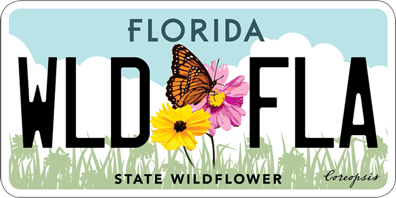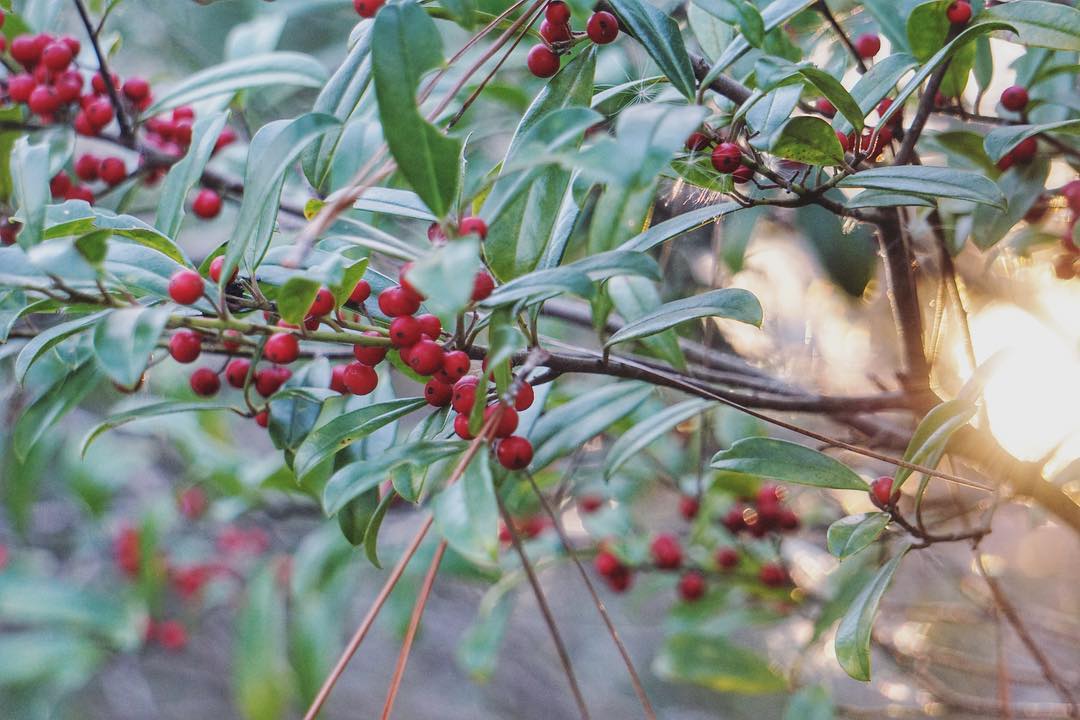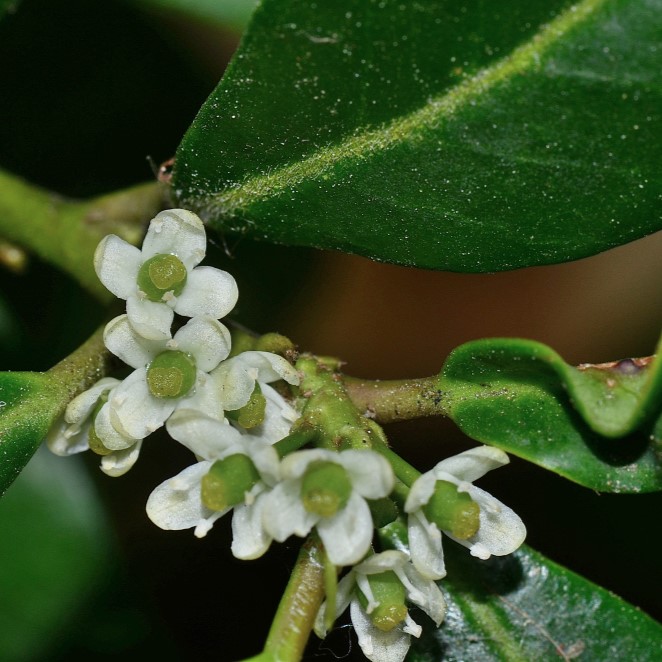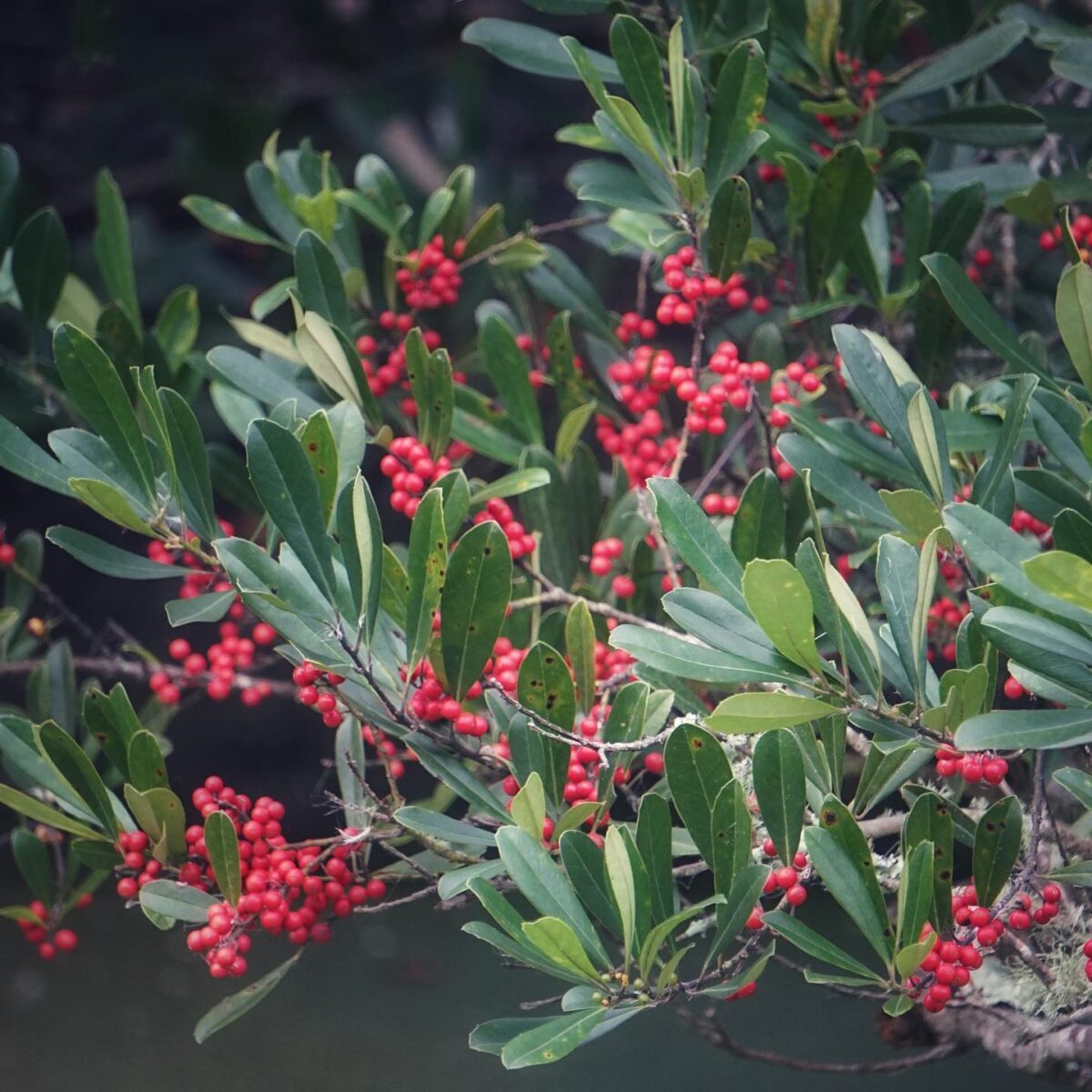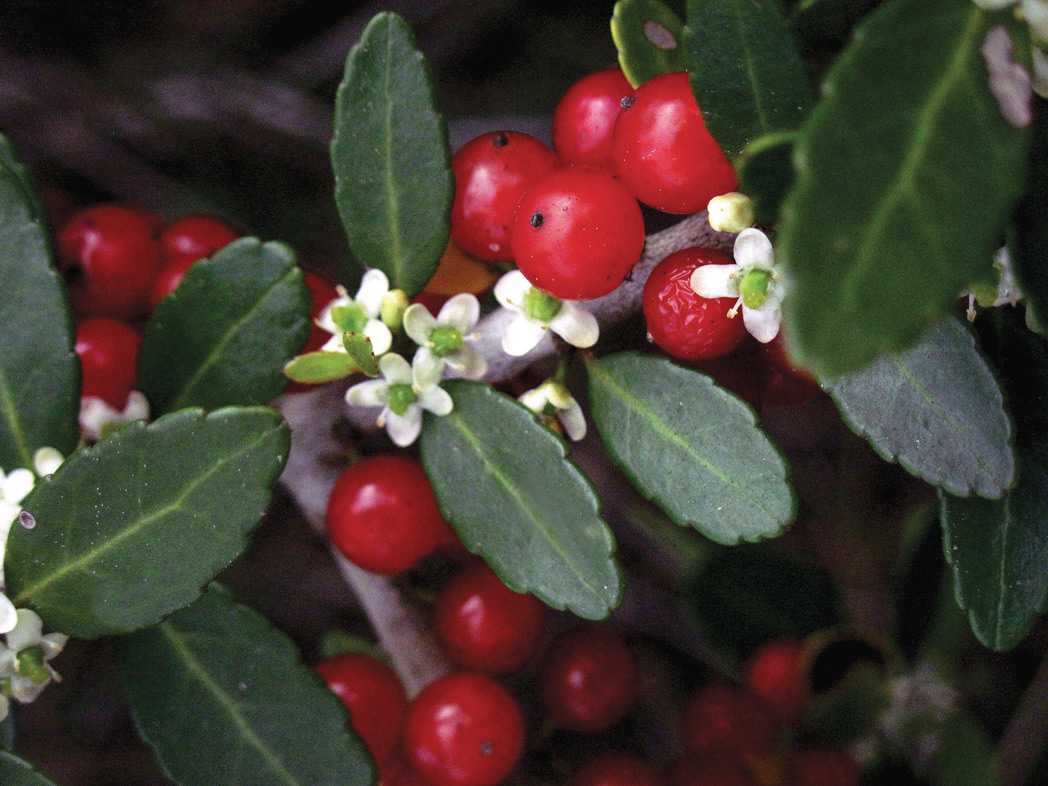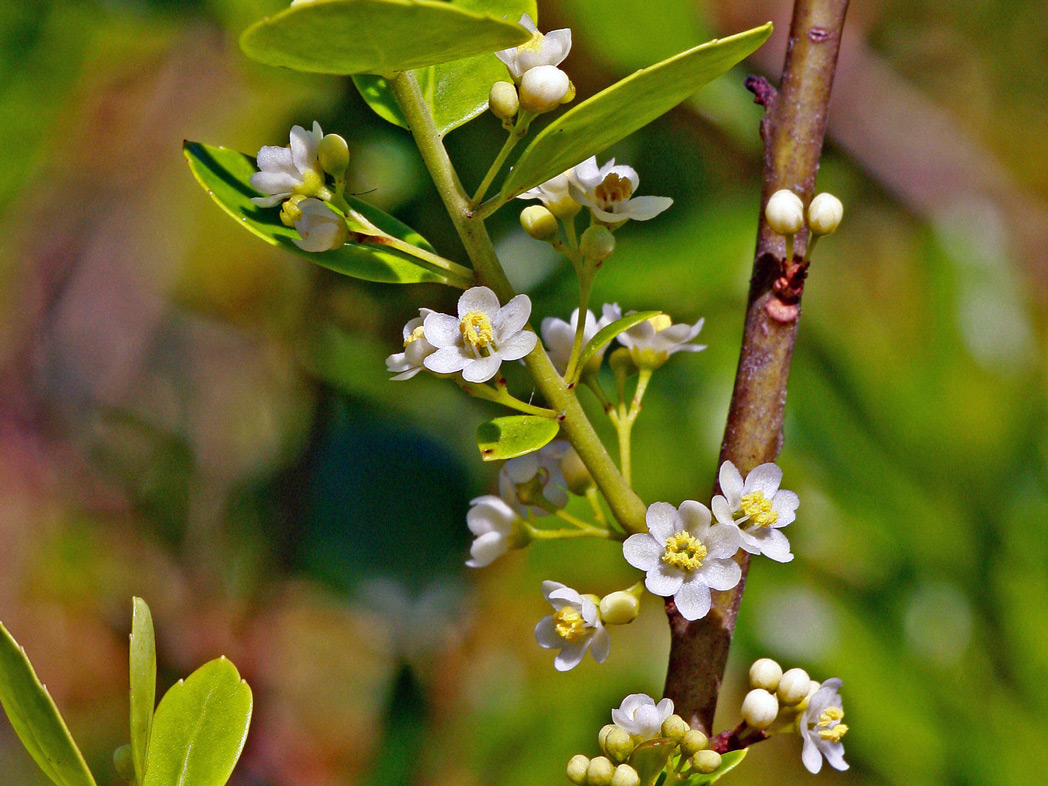Dahoon holly
Pictured above: Dahoon holly (Ilex cassine) by Emily Bell. Click on terms for botanical definitions. View post as a PDF.
Dahoon holly is an evergreen tree or large shrub with exceptional landscape potential. It is easy to grow and attractive year-round. Its dense foliage and abundant fruit are attractive to birds and other small wildlife. It occurs naturally in swamps, seepage slopes and hammocks and along pond edges.
Its small flowers have four or five yellowish-white petals surrounding a green superior ovary. They are born in showy axillary clusters. Leaves are simple, shiny and oblong with entire margins and bristly apices. (Margins are sometimes finely serrated, especially toward the tip.) Leaf arrangement is alternate. Crown is generally irregular. Bark is gray and smooth; it may be scaly in older specimens and covered with lichens, mosses or other epiphytes. Fruits are small, bright red drupes that are prolific from late fall through winter and occasionally into spring.
Dahoon holly with fruit is often used in Christmas decorations.
Family: Aquifoliaceae (Holly family)
Native range: Throughout Florida
To see where natural populations of Dahoon holly have been vouchered, visit florida.plantatlas.usf.edu.
Lifespan: Perennial
Soil: Well or poorly drained acidic soils
Exposure: Full sun to partial shade
Growth habit: 15–30′ tall; taller than wide
Propagation: Cuttings, seed. Unlike many other holly species, seeds germinate without special treatment.
Florida regions of landscape suitability: North, Central, South
Garden tips: Dahoon holly is highly adaptable to a variety of conditions, from full sun to full shade and seasonally inundated to much drier soils (although supplemental irrigation may be necessary to establish). It can be used near ponds or wetland edges and other watercourses. It works well as an accent or specimen plant, as well as grouped and shaped to form a buffer or screen. The plant is dioecious, meaning male and female flowers are born on separate plants. Plants of both sexes are required if berries are desired, but only the female will produce fruit.
Dahoon holly is available from nurseries that specialize in Florida native plants. Visit www.PlantRealFlorida.org to find a nursery in your area.
Learn more about Dahoon holly from The Institute of Regional Conservation and the Florida Native Plant Society.
For information on other Ilex species, see these resources:
